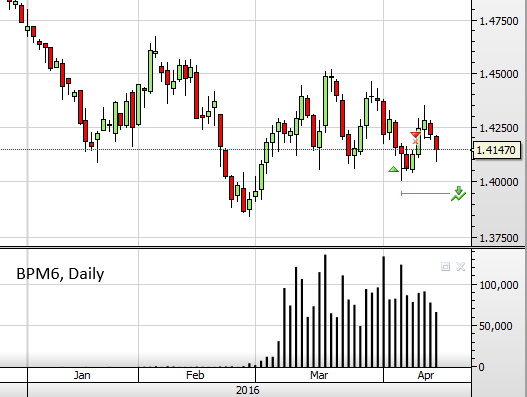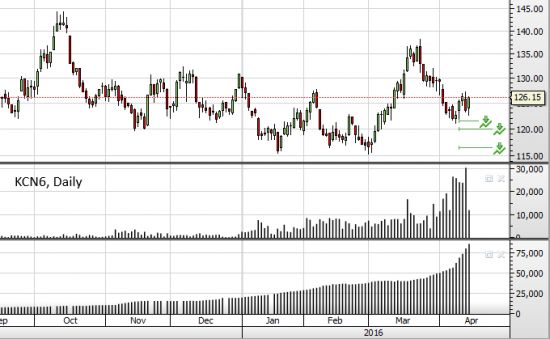SMART-LAB
Новый дизайн
Мы делаем деньги на бирже
bp
Злобный Сечин и добрый BP
- 28 мая 2016, 10:56
- |
К теме соблюдения прав миноритарных акционеров часто приводят запад, как идеал, к которому нужно стремиться. Я бы хотел напомнить недавнюю историю выкупа миноритарных долей в ТН-БП.
Вкратце так. Группа мажоритарных акционеров ТНК-БПХ (BP, Фридман, Блаватник, Вексельберг) продали свою доли Роснефти, но не напрямую, а в компании -владельце ТНК-БПХ. Так как Закон об АО не предусматривает в таком случае выставление обязательной оферты, то она первоначально не была выставлена. Роснефть перестала выплачивать дивиденды по ТНК-БПХ и начала выводить денежные средства через займы. Миноритарным акционерам удалось достучаться до премьера Медведева, который чуть надавив на Сечина заставил выставить оферту. Оферту выставили, но она миноритариев не обрадовала: цена была примерно в 2 раза ниже, чем для мажоритарных долей. Конечно, далеко не все согласились на такие условия и поэтому Сечину пришлось применить хитрость. Так как он уже консолидировал около 95% акций, но не мог в силу Закона объявить принудительный выкуп, пришлось продать неизвестной структуре около 10% по цене оферты (т.е в 2 раза ниже ее покупки) и тут же выкупить назад. Теперь по Закону можно выкупать принудительно, что и было сделано.
( Читать дальше )
Вкратце так. Группа мажоритарных акционеров ТНК-БПХ (BP, Фридман, Блаватник, Вексельберг) продали свою доли Роснефти, но не напрямую, а в компании -владельце ТНК-БПХ. Так как Закон об АО не предусматривает в таком случае выставление обязательной оферты, то она первоначально не была выставлена. Роснефть перестала выплачивать дивиденды по ТНК-БПХ и начала выводить денежные средства через займы. Миноритарным акционерам удалось достучаться до премьера Медведева, который чуть надавив на Сечина заставил выставить оферту. Оферту выставили, но она миноритариев не обрадовала: цена была примерно в 2 раза ниже, чем для мажоритарных долей. Конечно, далеко не все согласились на такие условия и поэтому Сечину пришлось применить хитрость. Так как он уже консолидировал около 95% акций, но не мог в силу Закона объявить принудительный выкуп, пришлось продать неизвестной структуре около 10% по цене оферты (т.е в 2 раза ниже ее покупки) и тут же выкупить назад. Теперь по Закону можно выкупать принудительно, что и было сделано.
( Читать дальше )
Призрак 1985 г все ближе и ближе!
- 05 мая 2016, 09:26
- |
1. Тогда, как и сейчас, производители торопились добыть (и продать!) как можно большие объемы.
2. Тогда, как и сейчас, не удалось заключить соглашение об ограничении добычи.

( Читать дальше )
Commodities: текущие акценты в заметках
- 14 апреля 2016, 17:20
- |
Сегодня только о наиболее интересующих меня моментах:
Фунт
Вышел из позиции на выдохшемся импульсе. Позиции нет, но есть старый ордер на подхвате.

Кофе
Новая ставка на рост. В прошлый раз весьма недурно прокатился вверх. Нынешняя раскладка еще неоднозначная, но преимущество за ростом. Отселе и мои длинные ордера.

( Читать дальше )
Фунт
Вышел из позиции на выдохшемся импульсе. Позиции нет, но есть старый ордер на подхвате.

Кофе
Новая ставка на рост. В прошлый раз весьма недурно прокатился вверх. Нынешняя раскладка еще неоднозначная, но преимущество за ростом. Отселе и мои длинные ордера.

( Читать дальше )
Bloomberg: Британская ВР "гребет прибыль лопатой" в России несмотря на санкции...
- 14 апреля 2016, 06:55
- |
Bloomberg: Британская ВР «гребет прибыль лопатой» в России несмотря на санкции…
Компания ВР, несмотря на режим санкций США и ЕС продолжает работать в России и «срывает большие барыши», заявляет Bloomberg...
Ссылка:
www.bloomberg.com/news/articles/2016-04-12/bp-reaping-rewards-in-russia-even-after-sanctions-added-to-risks
Компания ВР, несмотря на режим санкций США и ЕС продолжает работать в России и «срывает большие барыши», заявляет Bloomberg...
Ссылка:
www.bloomberg.com/news/articles/2016-04-12/bp-reaping-rewards-in-russia-even-after-sanctions-added-to-risks
От нефтяных компаний не ждут хороших вестей
- 28 апреля 2015, 10:58
- |

BP, Shell и ExxonMobil потеряют более 60% прибыли
Аналитики предсказывают значительное падение прибыли по итогам первого квартала у всех крупных нефтедобывающих компаний. Как ожидается, сильнее всего от низких цен на нефть и газ пострадают BP и Shell, которые, согласно оценкам, могут потерять порядка 60% выручки.Низкий уровень цен на нефть и газ серьезно отразится на финансовых показателях большинства компаний, работающих в данном секторе. Как отмечает The Guardian, опросившая ряд аналитиков, больше всего в сложившейся ситуации пострадают BP и Shell, выручка которых по итогам первого квартала может сократиться на 60%.
( Читать дальше )
BP боится поглощения со стороны Exxon Mobil
- 21 апреля 2015, 19:13
- |

Менеджмент очень озабочен в последнее время слухами о том, что их компания станет потенциальной целью на поглощение со стороны Exxon Mobil. Компания даже наняла Morgan Stanley для защиты от враждебного поглощения. Некоторые анонимные источники также говорят о том, что Chevron Corp также поглядывает на бритаанского нефтяного гиганта.
Слухи активизировались после покупки Royal Dutch Shell компании BG Group Plc за $70 млрд. Дабы не проиграть конкурентную войну, компаниям нужны большие активы, большие покупки, большой M&A. Учитывая перформанс последних лет, некоторые растроенные акционеры BP могут пойти на контакт с потенциальными покупателями. Кроме того акции BP находятся на самых низах.
Источник
- bitcoin
- brent
- eurusd
- forex
- gbpusd
- gold
- imoex
- ipo
- nasdaq
- nyse
- rts
- s&p500
- si
- usdrub
- wti
- акции
- алготрейдинг
- алроса
- аналитика
- аэрофлот
- банки
- биржа
- биткоин
- брокеры
- валюта
- вдо
- волновой анализ
- волны эллиотта
- вопрос
- втб
- газ
- газпром
- гмк норникель
- дивиденды
- доллар
- доллар рубль
- евро
- золото
- инвестиции
- индекс мб
- инфляция
- китай
- кризис
- криптовалюта
- лукойл
- магнит
- ммвб
- мобильный пост
- мосбиржа
- московская биржа
- мтс
- натуральный газ
- нефть
- новатэк
- новости
- обзор рынка
- облигации
- опрос
- опционы
- отчеты мсфо
- офз
- оффтоп
- прогноз
- прогноз по акциям
- путин
- раскрытие информации
- ри
- роснефть
- россия
- ртс
- рубль
- рынки
- рынок
- санкции
- сбер
- сбербанк
- северсталь
- сигналы
- смартлаб
- сущфакты
- сша
- технический анализ
- торговля
- торговые роботы
- торговые сигналы
- трамп
- трейдинг
- украина
- фондовый рынок
- форекс
- фрс
- фьючерс
- фьючерс mix
- фьючерс ртс
- фьючерсы
- цб
- цб рф
- экономика
- юмор
- яндекс


















 Новости тг-канал
Новости тг-канал
